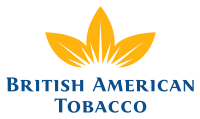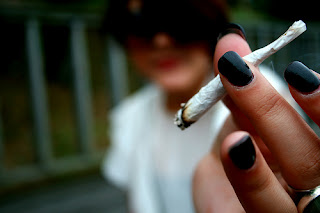More than two years after a Gilroy medical marijuana dispensary was shut down for operating without a city business license, a state appellate court has ruled that city officials were in the right by declaring it a “public nuisance” despite prolonged objections by the club’s operators.
In a 36-page opinion filed Tuesday by California’s Sixth District Court of Appeals, Associate Justice Wendy Clark Duffy wrote that the City of Gilroy acted within its power and broke no laws when it ordered MediLeaf to close its doors in August 2010.
City officials are confident the decision is the final nail in the coffin for MediLeaf’s fight, with City Attorney Andrew Faber calling the ruling “a complete judicial victory” in an email sent to Gilroy City Council members Tuesday.
Berliner Cohen, the city’s hired legal firm, is still compiling the final financial tally for Gilroy’s battle to close the dispensary, City Finance Director Christina Turner said. The city spent $202,500 in legal fees as of July, according to attorney bills obtained by the Dispatch, though City Councilman and attorney Perry Woodward predicts the total could approach $300,000 when all is counted.
Though Council members weren’t smiling over the price tag, there were still cheers for the city’s apparent victory.
“Of course, I’m happy. I never thought otherwise to be honest with you. From the beginning, I thought we were well within the law,” Councilwoman Cat Tucker said. “It’s a shame that it would cost so much money and take so long, but we did what we had to do and what the majority of the community wanted us to do.”
MediLeaf reps still have 30 days to submit their case to the state Supreme Court.
“Thirty days before I get a full sigh of relief,” Tucker said.
“I’m very happy that the courts agreed,” Mayor Al Pinheiro wrote in an e-mail Thursday, “and yet it is sad that ultimately the city of Gilroy had to spend so much money in protecting the right to decide what is best for Gilroy.
MediLeaf’s defendants – led by founder Goyko “Batzi” Kuburovich – asserted “various claims of error,” Justice Duffy wrote, including arguments that the dispensary should be allowed under the city’s zoning ordinance, and that prohibiting their operation “was unconstitutional.”
The court ruled their claims were “without merit.”
“We reject appellants’ challenges and conclude that the court properly found that Gilroy was entitled to judgment on its public nuisance claim,” Duffy wrote. “Accordingly, we will affirm the judgment.”
Woodward said the court made the correct decision, but maintained his gripe with the city’s battle against the dispensary has always focused on its climbing legal bills. Woodward – a partner at San Jose law firm Terra Law LLP, said he hasn’t seen the city’s final bill but predicted the $202,500 figure would be “far less” than what it would end up paying. He said the legal battle’s timing couldn’t have been worse.
“When we made this decision, we were laying off firefighters, laying off police officers,” Woodward said. “And to me, it’s just not money well spent.”
Woodward argues the city probably would have been better off allowing the dispensary to operate, though under strict guidelines.
“I would have liked to have seen what was being discussed at the time: I would have preferred to see the city adopt an ordinance that would have strictly regulated the operation, that would have limited the operations to one or two (locations),” Woodward said. “The next thing I had hoped to do was to impose a tax so we could have an additional source of revenue.”
He added, “It seems that the opposition to it was just a philosophical opposition to medical marijuana. So I’d like to get the money back.”
Woodward laughed that a refund was out of the question. And he said Gilroy’s battle against marijuana was far from finished.
“No, of course it’s not over. The issue of medical marijuana is going to go on for all of our lives,” he said. “The younger generation doesn’t see it in the same terms.”
Gilroy isn’t the only spot keeping a close on the MediLeaf saga. Woodward and City Administrator Tom Haglund have also been contacted by the Los Angeles Times for an article examining California cities’ battles with recent marijuana issues, the Dispatch has learned.
While no other marijuana dispensaries exist in Gilroy, Woodward predicted the drug will be fully legalized within the next 10 years, which would make Gilroy’s fight against MediLeaf seem ancient.
“We’re going to look back on this on the same way we look back on prohibition in my view,” he said.
Woodward said the MediLeaf case had some factors that “could be attractive” to the state Supreme Court, but agreed the legal debate was probably dead.
“The supreme court takes very few cases. Any case going to the supreme court is an extreme long shot,” he said.
MediLeaf opened Nov. 9, 2009 without a business license at 1321 First St. because they were operating as a nonprofit, the shop’s owners argued.
Superior Court Judge Kevin Murphy turned down the city’s request for a preliminary injunction Dec. 15, 2009 that would have shut down MediLeaf pending a trial, partly because of accusations that the city had violated the Brown Act during a closed session discussion Nov. 16.
The Council voted 4-3 in open sessions Dec. 30 to approve litigation. Mayor Al Pinheiro and Council members Cat Tucker, Dion Bracco and Bob Dillon voted yes in favor of the resolution. Woodward, along with Councilmen Peter Arellano and Craig Gartman voted against it.
MediLeaf was forced to close Aug. 9, 2010 after Superior Court Judge Kevin McKenney issued an eight-page order on July 20 upholding the city’s claim that MediLeaf was operating illegally following a Gilroy lawsuit.
Attorneys for MediLeaf filed a notice to appeal the prohibitory injunction the day after McKenney’s Santa Clara County court decision and requested the dispensary be allowed to operate during the appeals process. McKenney denied MediLeaf’s request on Sept. 13, 2010.
The dispensary maintains it used a not-for-profit model and therefore did not require a business license.
On Dec. 9, 2010, dozens of undercover law enforcement officers from across Santa Clara County raided eight homes and MediLeaf offices in Gilroy, Morgan Hill and San Jose as part of an eight-month investigation of illegal sales of marijuana and money laundering into the medicinal pot club.
The MediLeaf search warrant obtained by the Dispatch names the six people who law enforcement refused to release at the time of the warrant: founder Goyoko “Batzi” Kuburovich, 50, Patricia Kuburovich, 46, Kristel Kuburovich, 21, Neil Forrest, 58, Bruce Ziegelman, 53, and Kevin Keifer, 54.
Charges have not been filed against MediLeaf’s proprieters as of Thursday, said Lisa McCrary, spokeswoman for the Santa Clara County District Attorney’s Office.
Calls to “Batzi” Kuburovich and Forrest on Thursday were not returned as of press time.
Councilman Dion Bracco, who along with Councilman Woodward is running for the city’s mayoral seat in 2012, called Tuesday’s court decision “good news,” and said he doesn’t think MediLeaf will have a chance to continue its fight.
“According to our legal counsel, they don’t believe the high court would even listen to it,” Bracco said. “They’ve lost every step of the way. Who would believe they would finally win something?”
Bracco also called the city’s hefty legal bills “the cost of doing business.”
“A city can operate as it sees fit. They can’t just come in and do what they feel like and get away with it,” he said. “The way it’s set up, they have nothing to lose by filing these frivolous lawsuits. We have to defend our city. Otherwise, people can do whatever they feel like and get away with it.”
He added, “If you’re going to run your city according to price sheet or make decisions on how much it costs someone to fight your decisions, I don’t know what type of city you’d be living in.”















